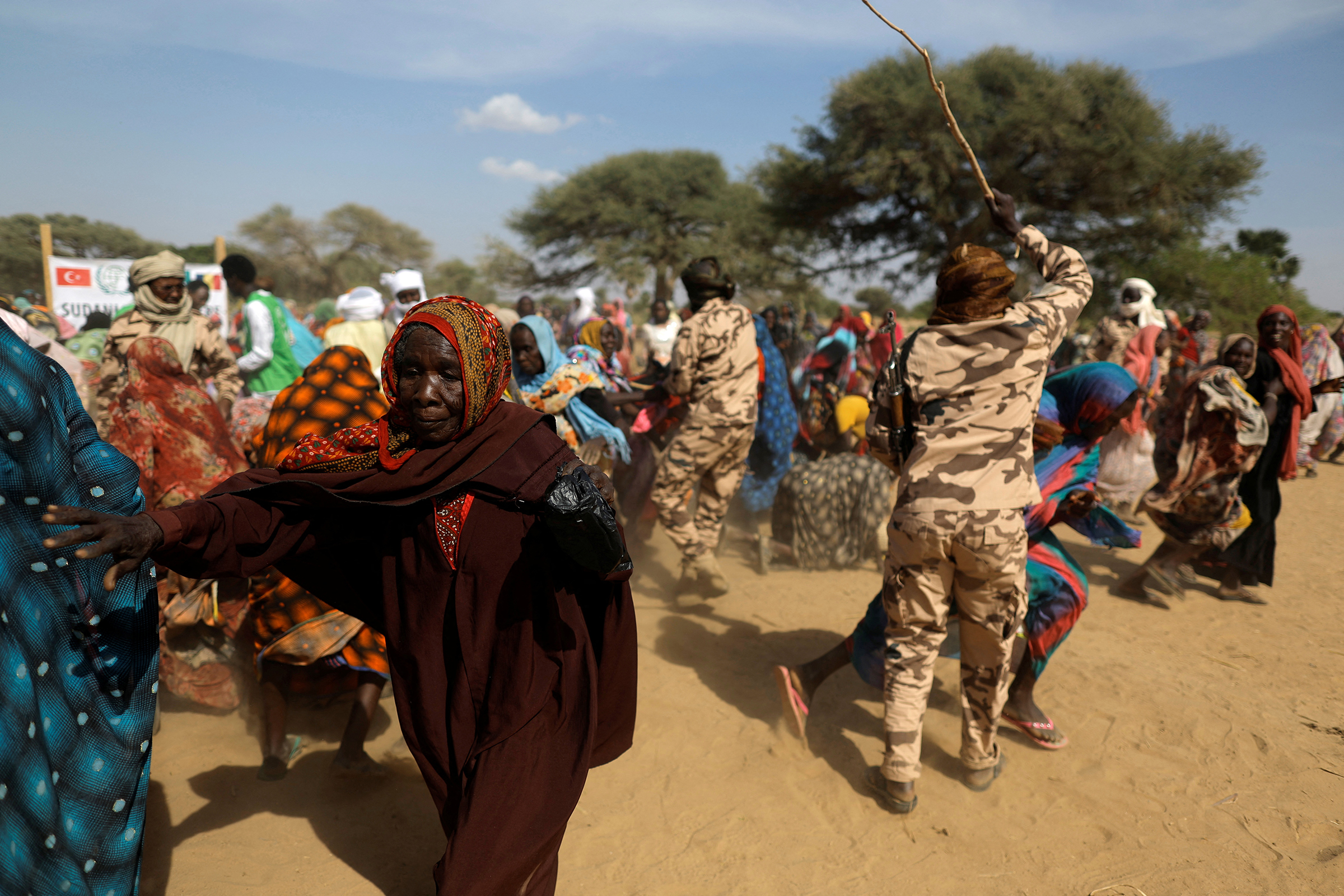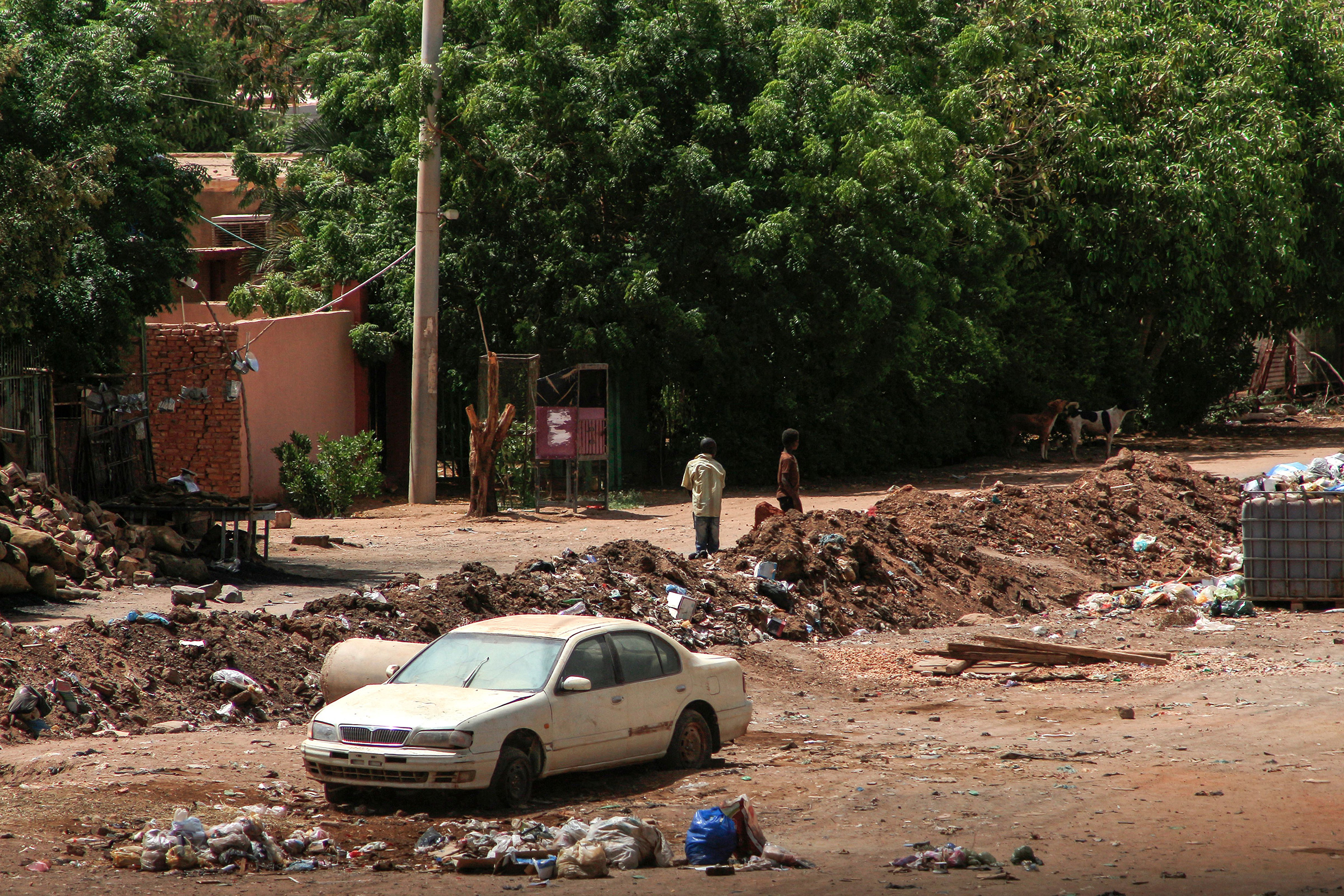The conflict in Sudan is rapidly escalating, already killing close to 1,000 people (some estimates go as high as 2,000 in West Darfur alone) and forcing nearly 1 million people to flee their homes—all at the hands of two generals, Abdul-Fattah al-Burhan, leading the Sudanese Armed Forces, and his erstwhile ally Mohamed Hamdan Dagalo, or Hemedti, heading the Rapid Support Forces paramilitary group. In response to the mounting death and destruction, the Biden Administration has authorized sanctions against individuals and entities destabilizing Sudan and “undermining” its democratic transition. But the executive order issued earlier this month remains mere words, and until it is implemented and targets the main perpetrators of the war and their financial networks, the U.S. will continue its failed policy on Sudan.
The Biden Administration drafted the initial version of the executive order after the October 2021 coup in Sudan, which consolidated power in the hands of the military generals, rupturing Sudan’s democratic transition. The administration, however, never released it to avoid rocking the boat with Burhan and Hemedti. That decision meant blindly placing faith in the two generals to resolve their differences and usher in a peaceful democracy, despite their two-decade history of committing atrocities with impunity in Sudan.


From 2003 to 2008, Burhan and Hemedti orchestrated mass atrocities in Darfur in a conflict that killed over 300,000, forcibly displaced more than 3 million, and resulted in the only genocide charge ever issued by the International Criminal Court against Sudan’s longtime dictator Omar al-Bashir in 2010. In 2019, following the popular uprising precipitating a military coup, Bashir was removed from power, and a Transitional Military Council (TMC) was established. Burhan chaired the council, and Hemedti served as his deputy. The two generals portrayed themselves as the guardians of the glorious Sudan revolution. They even arrested Bashir and senior members of his regime. Soon, however, their forces massacred pro-democracy protesters in Khartoum in front of the military headquarters.
The TMC and the Forces of Freedom and Change (FFC), an umbrella group that led the pro-democracy protests, negotiated a political agreement to form a civilian-led government, according to which the Transitional Sovereign Council (TSC) was set up. The TSC then appointed Abdallah Hamdok as Prime Minister in 2020. Though a civilian government was established, power largely remained in the hands of Burhan and Hemedti. Then, in October 2021, the generals violently seized control of the country in a military coup—arresting Hamdok and the majority of his cabinet, as well as disbanding the TSC.
Despite all this, the U.S. has only sanctioned one Sudanese entity since the coup, a lower-level police unit called Sudan’s Central Reserve Police for its use of excessive force against demonstrators. This is a stark contrast to the nearly 3,000 Russian individuals or entities currently sanctioned by the U.S., and the imposition this week of U.S. visa bans on individuals undermining Nigeria’s democratic process during the 2023 general elections.

The Biden Administration can do more. The financial networks sustaining the current conflict can be directly traced and targeted, as already exposed by independent investigations carried out by Clingendael Institute, Global Witness, and others. Such sanctions would redeem the U.S.’ image before the people of Sudan and reinforce its role as mediator because they would be applied equally and neutrally to all parties implicated in the ongoing violence. And they could force a change in Burhan and Hemedti’s calculus, isolate them, and cut them off from the financial flows that fund the war.
Such an action is sorely needed given the scale of the crisis in Sudan. The country faces imminent environmental, water, and health catastrophes. The healthcare system is on the verge of collapse, with 70% of hospitals near battlegrounds now out of service. The situation is even more dire in a country with 1.3 million refugees and over 4 million internally displaced people living in precarious conditions. A third of the population had already been dependent on humanitarian aid before the fighting; now more than half of Sudan, or 25 million people, are in need of aid and protection. Yet international humanitarian groups have largely withdrawn from the country due to safety concerns.
As this conflict drags on, the people of Darfur face an even more frightening situation beyond the reach of international observers. The longstanding fragility of the region’s security was exacerbated by the withdrawal of the U.N. African Mission in Darfur without alternative forces in place to protect civilians and humanitarian workers. Given the power vacuum, Darfur is at increased risk of an influx of Sub-Saharan terrorist groups and conflict along ethnic lines between what is perceived as Arab and non-Arab African ethnic groups.

Yet sanctions are hardly the only tool at the Biden Administration’s disposal. The U.S. and its allies should engage directly with the grassroots democracy movement as the rightful stewards of a future, peaceful Sudan. The international community should also support local resistance committees and community leaders who have most effectively protected and provided for the vulnerable. Meanwhile, key diplomatic players can work to permanently cease hostilities, open humanitarian safe zones, and protect aid groups.
The U.S. has an opportunity to reverse its past mistakes vis-à-vis Sudan and lead its allies in a concerted effort to target the funding underpinning this war, instead of standing by as Burhan and Hemedti commit open atrocities. The international community has common sense tools at their disposal to immediately impose costs on the individuals waging this war and prevent further destruction. At this critical juncture, the U.S. and its allies can choose to perpetuate 20 years of impunity or chart a new path forward and prioritize the dignity of human life. The choice is an obvious one.
More Must-Reads from TIME
- Caitlin Clark Is TIME's 2024 Athlete of the Year
- Where Trump 2.0 Will Differ From 1.0
- Is Intermittent Fasting Good or Bad for You?
- The 100 Must-Read Books of 2024
- Column: If Optimism Feels Ridiculous Now, Try Hope
- The Future of Climate Action Is Trade Policy
- FX’s Say Nothing Is the Must-Watch Political Thriller of 2024
- Merle Bombardieri Is Helping People Make the Baby Decision
Contact us at letters@time.com